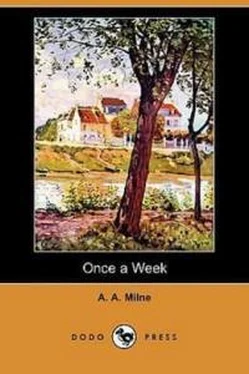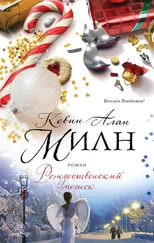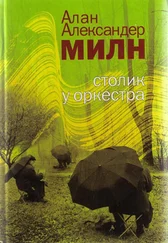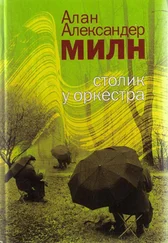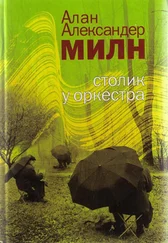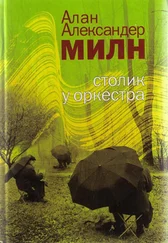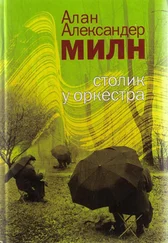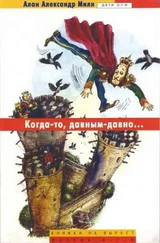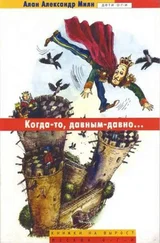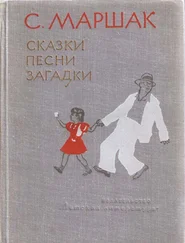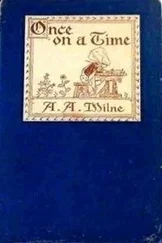Алан Милн - Once a Week
Здесь есть возможность читать онлайн «Алан Милн - Once a Week» весь текст электронной книги совершенно бесплатно (целиком полную версию без сокращений). В некоторых случаях можно слушать аудио, скачать через торрент в формате fb2 и присутствует краткое содержание. Год выпуска: 2014, Издательство: epubBooks Classics, Жанр: Юмористическая проза, на английском языке. Описание произведения, (предисловие) а так же отзывы посетителей доступны на портале библиотеки ЛибКат.
- Название:Once a Week
- Автор:
- Издательство:epubBooks Classics
- Жанр:
- Год:2014
- ISBN:нет данных
- Рейтинг книги:5 / 5. Голосов: 1
-
Избранное:Добавить в избранное
- Отзывы:
-
Ваша оценка:
- 100
- 1
- 2
- 3
- 4
- 5
Once a Week: краткое содержание, описание и аннотация
Предлагаем к чтению аннотацию, описание, краткое содержание или предисловие (зависит от того, что написал сам автор книги «Once a Week»). Если вы не нашли необходимую информацию о книге — напишите в комментариях, мы постараемся отыскать её.
Once a Week — читать онлайн бесплатно полную книгу (весь текст) целиком
Ниже представлен текст книги, разбитый по страницам. Система сохранения места последней прочитанной страницы, позволяет с удобством читать онлайн бесплатно книгу «Once a Week», без необходимости каждый раз заново искать на чём Вы остановились. Поставьте закладку, и сможете в любой момент перейти на страницу, на которой закончили чтение.
Интервал:
Закладка:
This was twenty years ago. Let us to–day take a walk through the galleries of Mr. Adrian Plimsoll's charming residence, which, as the world knows, overlooks the park. Any friend of mine is always welcome at Number Fifteen. We will start with the North Gallery; I fear that I shall only have time to point out a few of the choicest gems.
This is a Pontesiori sword of the thirteenth century—the only example of the master's art without any notches.
On the left is a Capricci comfit–box. If you have never heard of Capricci, you oughtn't to come to a house like this.
Here we have before us the historic de Montigny topaz. Ask your little boy to tell you about it.
In the East Gallery, of course, the chief treasure is the Santo di Santo amulet, described so minutely in his Vindiciæ Veritatis by John of Flanders. The original MS. of this book is in the South Gallery. You must glance at it when we get there. It will save you the trouble of ordering a copy from your library; they would be sure to keep you waiting….
With some such words as these I lead my friends round Number Fifteen. The many treasures in the private parts of the house I may not show, of course; the bathroom, for instance, in which hangs the finest collection of portraits of philatelists that Europe can boast. You must spend a night with Adrian to be admitted to their company; and, as one of the elect, I can assure you that nothing can be more stimulating on a winter's morning than to catch the eye of Frisby Dranger, F.Ph.S., behind the taps as your head first emerges from the icy waters.
Adrian Plimsoll sat at breakfast, sipping his hot water and crumbling a dry biscuit. A light was in his eye, a flush upon his pallid countenance. He had just heard from a trusty agent that the Scutori breast–plate had been seen in Devonshire. His car was ready to take him to the station.
But alas! a disappointment awaited him. On close examination the breast–plate turned out to be a common Risoldo of inferior working. Adrian left the house in disgust and started on his seven–mile walk back to the station. To complete his misery a sudden storm came on. Cursing alternately his agent and Risoldo, he made his way to a cottage and asked for shelter.
An old woman greeted him civilly and bade him come in.
"If I may just wait till the storm is over," said Adrian, and he sat down in her parlour and looked appraisingly (as was his habit) round the room. The grandfather clock in the corner was genuine, but he was beyond grandfather clocks. There was nothing else of any value: three china dogs and some odd trinkets on the chimney–piece; a print or two―
Stay! What was that behind the youngest dog?
"May I look at that old bracelet?" he asked, his voice trembling a little; and without waiting for permission he walked over and took up the circle of tarnished metal in his hands. As he examined it his colour came and went, his heart seemed to stop beating. With a tremendous effort he composed himself and returned to his chair.
It was the Emperor's Bracelet!
Of course you know the history of this most famous of all bracelets. Made by Spurius Quintus of Rome in 47 B.C., it was given by Cæsar to Cleopatra, who tried without success to dissolve it in vinegar. Returning to Rome by way of Antony, it was worn at a minor conflagration by Nero, after which it was lost sight of for many centuries. It was eventually heard of during the reign of Canute (or Knut, as his admirers called him); and John is known to have lost it in the Wash, whence it was recovered a century afterwards. It must have travelled thence to France, for it was seen once in the possession of Louis XI; and from there to Spain, for Philip the Handsome presented it to Joanna on her wedding day. Columbus took it to America, but fortunately brought it back again; Peter the Great threw it at an indifferent musician; on one of its later visits to England Pope wrote a couplet to it. And the most astonishing thing in its whole history was that now for more than a hundred years it had vanished completely. To turn up again in a little Devonshire cottage! Verily, truth is stranger than fiction.
"That's rather a curious bracelet of yours," said Adrian casually. "My—er—wife has one just like it, which she asked me to match. Is it an old friend, or would you care to sell it?"
"My mother gave it me," said the old woman, "and she had it from hers. I don't know no further than that. I didn't mean to sell it, but―"
"Quite right," said Adrian, "and, after all, I can easily get another."
"But I won't say a bit of money wouldn't be useful. What would you think a fair price, sir? Five shillings?"
Adrian's heart jumped. To get the Emperor's bracelet for five shillings!
But the spirit of the collector rose up strong within him. He laughed kindly.
"My good woman," he said, "they turn out bracelets like that in Birmingham at two shillings apiece. And quite new. I'll give you tenpence."
"Make it one–and–sixpence," she pleaded. "Times are hard."
Adrian reflected. He was not, strictly speaking, impoverished. He could afford one–and–sixpence.
"One–and–tuppence," he said.
"No, no, one–and–sixpence," she repeated obstinately.
Adrian reflected again. After all, he could always sell it for ten thousand pounds, if the worst came to the worst.
"Well, well," he sighed. "One–and–sixpence let it be."
He counted out the money carefully. Then, putting the precious bracelet in his pocket, he rose to go.
Adrian has no relations living now. When he dies he proposes to leave the Plimsoll Collection to the nation, having—as far as he can foresee—no particular use for it in the next world. This is really very generous of him, and no doubt, when the time comes, the papers will say so. But it is a pity that he cannot be appreciated properly in his lifetime. Personally I should like to see him knighted.
The Adventurer
Lionel Norwood, from his earliest days, had been marked out for a life of crime. When quite a child he was discovered by his nurse killing flies on the window–pane. This was before the character of the house–fly had become a matter of common talk among scientists, and Lionel (like all great men, a little before his time) had pleaded hygiene in vain. He was smacked hastily and bundled off to a preparatory school, where his aptitude for smuggling sweets would have lost him many a half–holiday had not his services been required at outside–left in the hockey eleven. With some difficulty he managed to pass into Eton, and three years later—with, one would imagine, still more difficulty—managed to get superannuated. At Cambridge he went down–hill rapidly. He would think nothing of smoking a cigar in academical costume, and on at least one occasion he drove a dogcart on Sunday. No wonder that he was requested, early in his second year, to give up his struggle with the Little–go and betake himself back to London.
London is always glad to welcome such people as Lionel Norwood. In no other city is it so simple for a man of easy conscience to earn a living by his wits. If Lionel ever had any scruples (which, after a perusal of the above account of his early days, it may be permitted one to doubt) they were removed by an accident to his solicitor, who was run over in the Argentine on the very day that he arrived there with what was left of Lionel's money. Reduced suddenly to poverty, Norwood had no choice but to enter upon a life of crime.
Except, perhaps, that he used slightly less hair–oil than most, he seemed just the ordinary man about town as he sat in his dressing–gown one fine summer morning and smoked a cigarette. His rooms were furnished quietly and in the best of taste. No signs of his nefarious profession showed themselves to the casual visitor. The appealing letters from the Princess whom he was blackmailing, the wire apparatus which shot the two of spades down his sleeve during the coon–can nights at the club, the thimble and pea with which he had performed the three–card trick so successfully at Epsom last week—all these were hidden away from the common gaze. It was a young gentleman of fashion who lounged in his chair and toyed with a priceless straight–cut.
Читать дальшеИнтервал:
Закладка:
Похожие книги на «Once a Week»
Представляем Вашему вниманию похожие книги на «Once a Week» списком для выбора. Мы отобрали схожую по названию и смыслу литературу в надежде предоставить читателям больше вариантов отыскать новые, интересные, ещё непрочитанные произведения.
Обсуждение, отзывы о книге «Once a Week» и просто собственные мнения читателей. Оставьте ваши комментарии, напишите, что Вы думаете о произведении, его смысле или главных героях. Укажите что конкретно понравилось, а что нет, и почему Вы так считаете.
